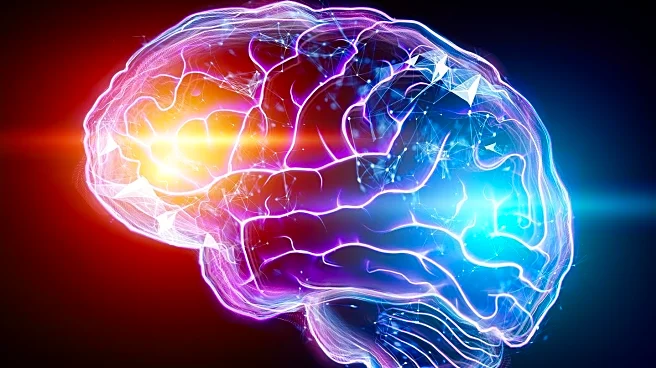What's Happening?
Researchers at McGill University and the Douglas Institute have made a significant breakthrough in understanding depression by identifying specific brain cells that exhibit changes in individuals with the condition. Published in Nature Genetics, the study utilized post-mortem brain tissue from the Douglas-Bell Canada Brain Bank, which includes donations from individuals with psychiatric conditions. Through advanced single-cell genomic analysis, the researchers examined RNA and DNA from thousands of brain cells, discovering altered gene activity in two types of cells: excitatory neurons responsible for mood and stress regulation, and a subtype of microglia, the immune cells managing brain inflammation. This research provides a clearer picture of the biological disruptions occurring in depression, potentially guiding the development of targeted treatments.
Why It's Important?
This discovery is crucial as it enhances the scientific understanding of depression, a condition affecting over 264 million people globally and a leading cause of disability. By pinpointing the specific brain cells involved, the research challenges outdated views of depression as merely an emotional disorder, highlighting its basis in measurable brain changes. The findings could lead to more effective treatments by focusing on the cellular changes influencing brain function. This advancement in neuroscience underscores the importance of biological research in developing therapeutic strategies for mental health conditions, potentially benefiting millions of individuals suffering from depression.
What's Next?
The researchers plan to further investigate how these cellular changes impact brain function and explore whether targeting these specific cells could result in more effective treatments for depression. This ongoing research could pave the way for new therapeutic approaches, potentially transforming the treatment landscape for depression. As the study progresses, it may attract interest from pharmaceutical companies and healthcare providers looking to develop innovative solutions for mental health disorders.
Beyond the Headlines
The study's use of the Douglas-Bell Canada Brain Bank highlights the importance of rare brain tissue collections in advancing psychiatric research. This approach not only deepens the understanding of depression but also sets a precedent for future studies on other mental health conditions. The ethical considerations of using post-mortem brain tissue for research are significant, emphasizing the need for continued support and funding for brain banks and similar initiatives.










